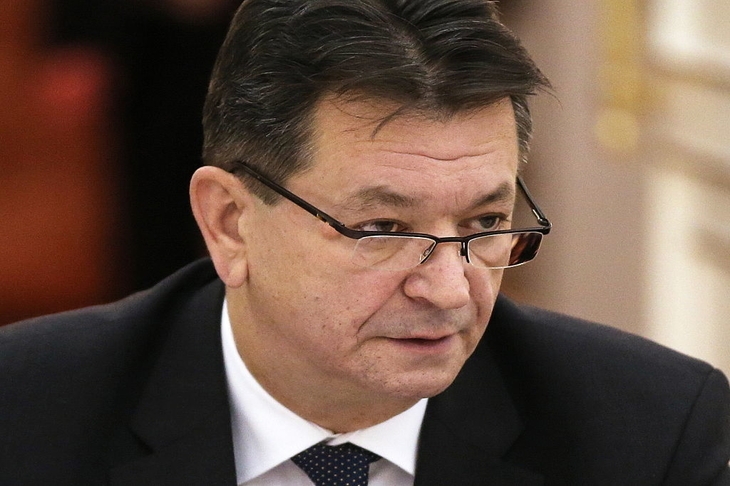At the last minute, the Russian police general everyone had assumed was a shoo-in to become the next head of Interpol was defeated by the acting head, South Korean Kim Jong-yang. It’s good news for the international police cooperation organisation, for the West and, arguably, for justice – but it’s not the end of the story. The presumed front-runner, major general Alexander Prokopchuk – formerly the head of Russia’s Interpol bureau – has been accused of supervising the systematic attempt to apparently use the agency to persecute the Kremlin’s political enemies.
Nonetheless, until the eleventh hour, everyone saw Prokopchuk as the heir apparent. Moscow certainly seems to have thought so. It has just opened another case against one of its bêtes noires, the financier Bill Browder. Having been the victim of a tax fraud at the hands of corrupt Russian officials, in the course of which his lawyer Sergei Magnitsky was tortured and left do die without medical attention in prison, Browder is campaigning for the EU to introduce new laws sanctioning Russian human rights abusers. Now he is being accused by Russia of masterminding an international criminal conspiracy and even poisoning Magnitsky inside a Moscow prison. No doubt the paperwork requesting another Interpol arrest warrant in his name – a so-called ‘red notice’ – is already in the system.
Film and TV representations notwithstanding, Interpol has very little actual power. It is an information brokerage. It shares intelligence supplied by member states’ police with others and distributes a series of colour-coded notices alerting them to everything from missing children to wanted gangsters. It can ask and alert, not compel. Even its red notices can be ignored or overruled by national courts. It depends on its credibility and its reputation, and both are coming under growing pressure.
So it is a relief that Western pressure appears to have swung the vote away from the Russian candidate. Politicians from various countries expressed their alarm and incredulity at the thought of Prokopchuk’s election. Lithuania’s parliament voted to withdraw from the agency if this happened; Ukrainian lawmakers suggested the same. The British government, sadly, appeared to have decided it was not worth spending political capital on what seemed a done deal, but fortunately enough, others were willing to carry the fight to the end.
That Prokopchuk seemed to have such a commanding majority says more about the world than Interpol. Every member state of Interpol has one vote in the General Assembly, and the West is outnumbered and outgunned. The sad but unavoidable truth is that, in many ways, Russia and its practices are more in step with many other countries’. What states such as Russia, China and Turkey do brazenly, many others do quietly.
As it was, the risk of both shattering the police union and angering the West seems to have carried the day. This time. Prokopchuk’s election would have been greeted as a symbolic victory by Moscow but – hysterical claims notwithstanding – would not have meant that the Kremlin could suddenly turn Interpol into its international attack dog. It is an often cumbersome bureaucracy, with all kinds of internal controls and constraints.
But this is an unwelcome, timely rebuke for comfortable Western assumptions that its values are always ascendant and that even countries which might not share them think twice before flouting them. In a world where the Saudis dismember dissidents in consulates using Interpol to hound some dissidents may seem small beer.
Interpol dodged a bullet this time, but it is clear that this was a battle won, not a war. The agency needs reforming, and it needs revising. If its brand becomes too tarnished, then after a certain point its red notices will routinely be ignored and its requests for information left unanswered. Only the gangsters gain from that.
The reason why this is such an issue is the same reason Prokopchuk was going to win the vote. The point is not what Russia is already doing when it abuses international law enforcement cooperation – but how far, when Moscow leads, others will follow.







Comments